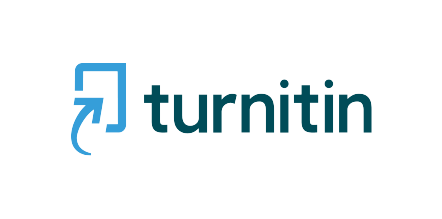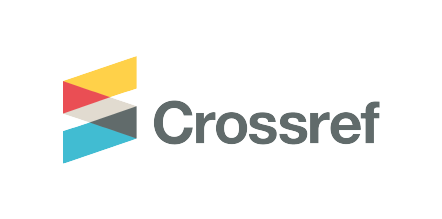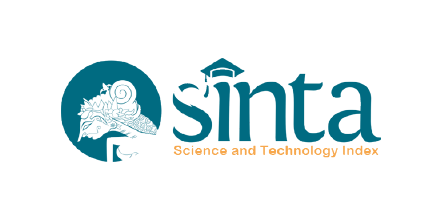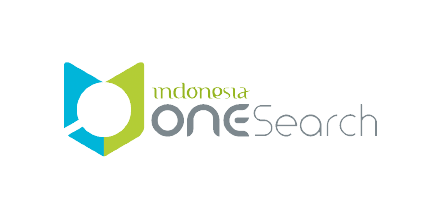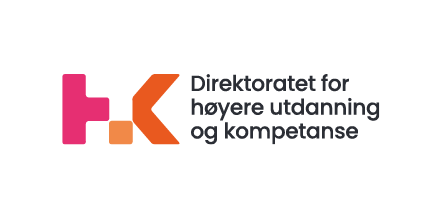Pro Disability Policy in Local Governments: Lessons from the Central Lampung Regency
DOI:
https://doi.org/10.21776/ub.ijds.2021.008.01.13Keywords:
Disabilities Policy, Local Government, Social Protection, Colaboration.Abstract
All local governments have the same responsibility and obligation in positioning themselves as institution that are friendly to persons with disabilities, including Central Lampung Regency in Lampung Province. There are two important questions from the research which is the basis of this study; (1). What are the efforts made by the Central Lampung Regency government towards groups with disabilities? (2). What are the problems that occur in the management of disability groups in Central Lampung Regency?. The type of this research is descriptive with a qualitative approach. The data used by researchers in this study are sourced from primary and secondary data. In this study, primary data obtained through interview techniques was carried out by giving several questions related to the problem issues in research to the informants who had been determined. Informants in this study was collected with a purposive sampling technique. The key informants in this study were 9 heads of local government organizations, 10 representatives of community organizations, and 5 members of the regional parliament. All of them play a role in data collection activities which include focus group discussions, in-depth interviews, observation, and documentation. Meanwhile, data analysis was carried out using interactive data analysis techniques. In the last three years, the number of people with disabilities in Central Lampung has increased. However, the increase in the number of people with disabilities in Central Lampung is due to the expansion of the meaning and scope of disabilities in Indonesia regulation. It is known that several actions at the level of local government organizations in facilitating groups with disabilities can be designed in a more focused manner in the design of programs and policies covering the government, population and civil registration, social, health, education, employment, and transportation, and public infrastructure sectors.
References
Anand, P., Roope, L. S. J., Culyer, A. J., & Smith, R. (2020). Disability and multidimensional quality of life: A capability approach to health status assessment. Health Economics (United Kingdom), 29(7), 748-765. https://doi.org/10.1002/hec.4017
Anomsari, E. T., & Mursalim, S. W. (2020). Mainstreaming Disability: Challenges and Strategies Toward Equality and Decent Work in Indonesia | Soshum: Jurnal Sosial dan Humaniora. http://ojs.pnb.ac.id/index.php/SOSHUM/article/view/1444
Bella, A., & Dartanto, T. (2018). Persons with disabilities (PWD) and poverty in Indonesia. Malaysian Journal of Economic Studies, 55(2), 167.
Bezyak, J. L., Sabella, S. A., & Gattis, R. H. (2017). Public Transportation: An Investigation of Barriers for People With Disabilities. Journal of Disability Policy Studies, 28(1), 52-60. https://doi.org/10.1177/1044207317702070
Cieza, A., Sabariego, C., Bickenbach, J., & Chatterji, S. (2018). Rethinking Disability. BMC Medicine, 16(1), 14. https://doi.org/10.1186/s12916-017-1002-6
Dirth, T. P., & Branscombe, N. R. (2017). Disability Models Affect Disability Policy Support through Awareness of Structural Discrimination. Journal of Social Issues, 73(2), 413-442. https://doi.org/10.1111/josi.12224
Fairuz, F. S., & Meliana, M. D. (2017). Implementation Of Public Facilities And Disability Treatments: A Comparison Between Indonesia And Malaysia. 11–15. https://doi.org/10.2991/icddims-17.2018.3
Fikriyah, U. (2017). Legal protection of right of education for persons with disability in Indonesia and islamic law. Legal Protection of Education Right for Person with Disability in Indonesia Compared to Islamic View. 124-132. https://doi.org/10.2991/icddims-17.2018.26
Fortune, N., Badland, H., Clifton, S., Emerson, E., Rachele, J., Stancliffe, R. J., Zhou, Q., & Llewellyn, G. (2020). The Disability and Wellbeing Monitoring Framework: Data, data gaps, and policy implications. Australian and New Zealand Journal of Public Health, 44(3), 227-232. https://doi.org/10.1111/1753-6405.12983
Frian, A., Mulyani, F., Joachim, H., Anggreni, D., & Effendi, W. Y. (2019, January 5). Employment Situation of Person with Disabilities: Case Study in Indonesia [MPRA Paper]. https://mpra.ub.uni-muenchen.de/91576/
Halimatussadiah, A., Nuryakin, C., Muchtar, P. A., Bella, A., & Rizal, H. (2017). Mapping Persons with Disabilities (PWDs) in Indonesia Labor Market. Economics and Finance in Indonesia, 63(2), 126-149. https://doi.org/10.47291/efi.v63i2.572
Hidayat, H. N., Pramono, Meigalia, E., Saddhono, K., & Anwar, K. (2019). INCOLWIS 2019: Proceedings of the 2nd International Conference on Local Wisdom, INCOLWIS 2019, August 29-30, 2019, Padang, West Sumatera, Indonesia. European Alliance for Innovation.
Hikmawati, E., & Rusmiyati, C. (2011). Kebutuhan Pelayanan Sosial Penyandang Cacat. Jurnal Informasi, 16(1), 18.
Huripah, E. (2020). Towards an Inclusive Social Welfare Institution for Disabilities: The Case of Indonesia. Asian Social Work Journal, 5(1), 18-28. https://doi.org/10.47405/aswj.v5i1.122
Kiling, I., Due, C., Li, D., & Turnbull, D. (2019). Perceptions of disability, environmental risk factors and available services among local leaders and parents of young children with disabilities in West Timor, Indonesia. Disability and Rehabilitation, 41(20), 2421-2432. https://doi.org/10.1080/09638288.2018.1466924
Kim, Y. (2020). Child Welfare Service Reform in Nebraska and New Public Service (NPS). Student Research and Creative Activity Fair. https://digitalcommons.unomaha.edu/srcaf/2020/schedule/71
LaRoche, D., & Dhita, F. (2017). A qualitative investigation of the healthcare challenges of women with disabilities in Yogyakarta (Indonesia): Implication for health policy. https://doi.org/10.26021/9527
Lawson, A., & Beckett, A. E. (2020). The Social and Human Rights Models of Disability: Towards a Complementarity Thesis. International Journal of Human Rights, 0(0), 1-32. https://doi.org/10.1080/13642987.2020.1783533
Ningtyas, T. (2017). New Public Service: Pelayanan Publik Berbasis Humanistik untuk Kesuksesan Reformasi Birokrasi. Jurnal Ilmiah Manajemen Publik Dan Kebijakan Sosial, 1(1), 13-22. https://doi.org/10.25139/jmnegara.v1i1.283
Notoprayitno, M. I., & Jalil, F. (2019). Legal Aspect of Inclusive Education for Persons with Disabilities in Indonesia (SSRN Scholarly Paper ID 3502170). Social Science Research Network. https://papers.ssrn.com/abstract=3502170
Nurhayati, S. (2020). Social Inclusion For Persons With Disabilities Through Access To Employment In Indonesia. Prophetic Law Review, 2(1), 1-21. https://doi.org/10.20885/PLR.vol2.iss1.art1
Panggabean, S. N. (2019). Access of People with Disabilities to Justice in Indonesia General Court System. IJDS: Indonesian Journal of Disability Studies, 6(1), 95-101. https://doi.org/10.21776/ub.ijds.2019.006.01.13
Percy, S. L. (2018). Disability, Civil Rights, and Public Policy: The Politics of Implementation. University of Alabama Press.
Prasetyo, F. A. (2014). Disabilitas Dan Isu Kesehatan: Antara Evolusi Konsep, Hak Asasi, Kompleksitas Masalah, dan Tantangan. Buletin Jendela Data Dan Informasi Kesehatan, II, 31-40.
Priscyllia, F. (2016). Kajian Hukum Terhadap Fasilitas Pelayanan Publik Bagi Penyandang Disabilitas. Lex Crimen, V(3), 105-112.
Rahayu, S., & Dewi, U. (2013). Pelayanan Publik Bagi Pemenuhan Hak-Hak Disabilitas di Kota Yogyakarta. Natapraja, 1(1).
Shakespeare, T. (2017). Disability: The Basics. Routledge.
Singsa, A., Sriyakul, T., Sutduean, J., & Jermsittiparsert, K. (2019). Willingness of Supply Chain Employees to Support Disability Management at Workplace: A Case of Indonesian Supply Chain Companies. Journal of Computational and Theoretical Nanoscience, 16(7), 2982-2989. https://doi.org/10.1166/jctn.2019.8205
Sriram, N., Misomnai, C., Metasuttirat, J., & Rajphaetyakhom, C. (2019). A Comparative Analysis of New Public Management New Public Service and New Public Governance (SSRN Scholarly Paper ID 3553641). Social Science Research Network. https://papers.ssrn.com/abstract=3553641
Stout, M. (2018). The impossibility of a universal public service perspective. Teaching Public Administration, 36(3), 222-236. https://doi.org/10.1177/0144739417738953
Strokosch, K., & Osborne, S. P. (2021). Co-production from a Public Service Logic Perspective. In E. Loeffler & T. Bovaird (Eds.), The Palgrave Handbook of Co-Production of Public Services and Outcomes (pp. 117-131). Springer International Publishing. https://doi.org/10.1007/978-3-030-53705-0_6
Sudarmo. (2011). Issu-Issu Administrasi Publik Dalam Perspektif Governance. Smart Media.
Vehmas, S., & Watson, N. (2014). Moral Wrongs, Disadvantages, and Disability: A Critique of Critical Disability Studies. Disability and Society, 29(4), 638-650. https://doi.org/10.1080/09687599.2013.831751
Wardana, A., & Dewi, N. P. Y. P. (2017). Moving Away From Paternalism: The New Law on Disability in Indonesia. Asia-Pacific Journal on Human Rights and the Law, 18(2), 172-195. https://doi.org/10.1163/15718158-01802003
World Health Organization. (2015). WHO Global Disability Action Plan 2014-2021. Better Health for All People with Disability.
Downloads
Published
How to Cite
Issue
Section
License
Copyright (c) 2022 Simon Sumanjoyo Hutagalung, Dodi Faedlulloh

This work is licensed under a Creative Commons Attribution-NonCommercial 4.0 International License.








